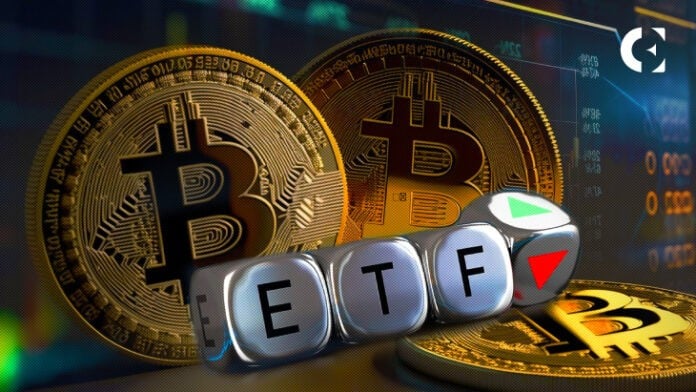Bitcoin ETFs and Online Gambling: Navigating the Legal and Regulatory Landscape

Table of Contents
The rise of Bitcoin and other cryptocurrencies has sent ripples throughout the financial world, and the online gambling industry is no exception.
With the emergence of Bitcoin exchange-traded funds (ETFs), a new layer of complexity has been added to the legal and regulatory landscape surrounding crypto gambling.
In this article, we’ll explore the intersection of Bitcoin ETFs and online gaming, examining the current state of regulations and what gamblers can expect moving forward.
Understanding Bitcoin ETFs
Before diving into the legal implications, let’s establish a basic understanding of Bitcoin ETFs.
These investment funds track the price of Bitcoin, allowing investors to gain exposure to the cryptocurrency without directly owning it. This can be appealing to those who want to invest in Bitcoin but are hesitant about the complexities of managing their own digital wallets.
They trade on traditional stock exchanges just like stocks do. This makes buying and selling them easier for many investors than buying Bitcoin directly on a cryptocurrency exchange.

The Intersection: Bitcoin ETFs and Online Gaming
The introduction of Bitcoin ETFs adds another wrinkle to this already complex situation. Regulatory bodies are still grappling with classifying and overseeing these new financial instruments.
This uncertainty can create confusion for platforms that accept Bitcoin transactions and wagers. Despite the confusion, many gaming platforms are embracing cryptocurrencies, offering a variety of Top Cryptocurrency Promotions and bonuses to attract crypto-savvy gamblers.
The Regulatory Maze of Bitcoin ETFs and Online Gambling

Online gambling regulations vary widely across the globe. Some countries have completely legalised and regulated online gambling, while others have strict prohibitions. This patchwork of laws creates challenges for both operators and gamblers themselves.
The UKGC has not issued specific regulations regarding using Bitcoin or other cryptocurrencies for online gaming. However, they expect licensed operators to have robust tools like anti-money laundering (AML) and Know Your Customer (KYC) procedures.
This might make it difficult for some platforms to accept Bitcoin due to the nature of cryptocurrency transactions.
Legal Considerations for Gamblers
For gamblers who prefer using Bitcoin or other cryptocurrencies, it’s crucial to stay informed about the legal landscape in their jurisdiction. Here are some key considerations:
- Legality: Is gambling legal in your location? If so, what are the specific regulations?
- Licensing: Is the online platform you are considering licensed and regulated in a reputable jurisdiction?
- Restrictions: Does the platform have any restrictions on using Bitcoin or other cryptocurrencies for gambling?
The Future of Bitcoin and Gambling
The regulatory landscape surrounding Bitcoin ETFs and gambling is constantly evolving. As regulators better understand these new technologies, we can expect more precise and consistent regulations to emerge. However, this process is likely to take time.
The convergence of Bitcoin ETFs and online gambling presents a fascinating intersection of finance and entertainment. However, navigating this space cautiously and staying informed about legal and regulatory developments is essential.
Gambling with any currency depends significantly on how lucky you are. By understanding the risks and exercising caution, gamblers can approach crypto gambling with a clearer understanding of the potential implications.






